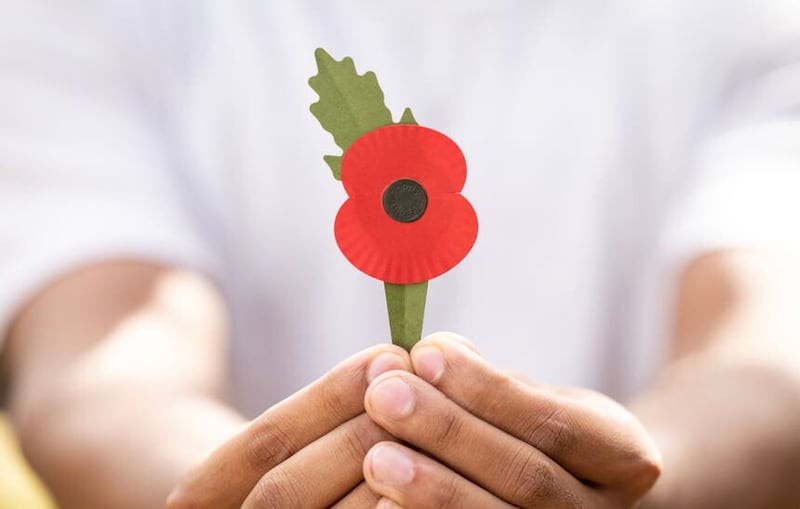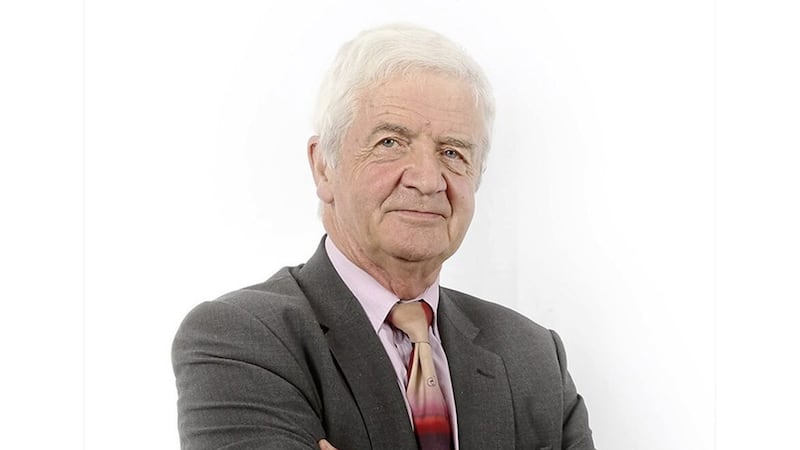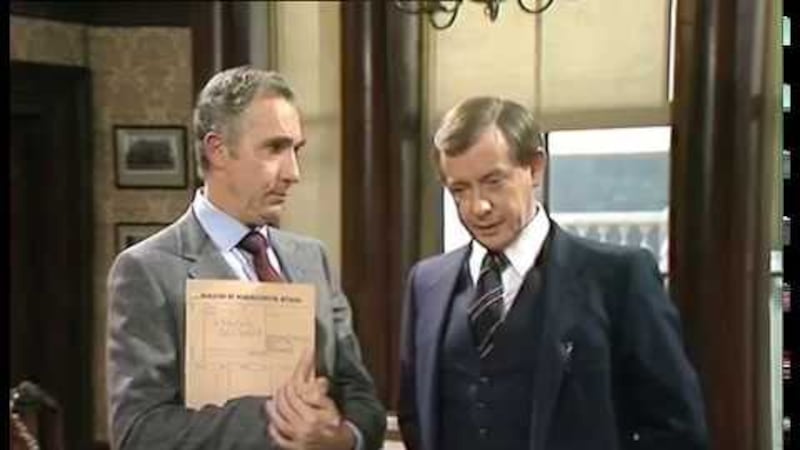THIS is the weekend when Britain honours its war dead and those who went to war with them.
Today is Armistice Day, the anniversary of the end of World War I, and tomorrow is Remembrance Sunday, when those who fought for Britain in more than 50 wars since then will also be honoured, mainly through the symbolism of the poppy.
Although the poppy is sold to raise money for ex-service personnel and their families (which should be a government responsibility), it is effectively seen as a statement of British patriotism.
While “Brits Out” has traditionally summarised Irish patriotism, the British equivalent is “Brits In”, as all British wars have been fought in other countries.
So what exactly did British soldiers die for? Does a poppy really ‘honour” them? What about those they killed in countries where Britain had no right to be and, if they died for their country, who or what is their country?

Welcome to the politics of patriotism.
Armed Britons have been marauding across the world since 1095 when Pope Urban II authorised them to attack Muslims in the Holy Land in what were known as the Crusades. However, modern British remembrance usually just extends back to World War I.
That was a war between two empires, Britain and Germany. Since the German Kaiser was Queen Victoria’s grandson, 880,000 British soldiers were slaughtered in what was effectively a family row.
To avoid public resentment, three years into the war, Britain’s royal family changed its name from Saxe-Coburg-Gotha to Windsor (as in Framework). So up to 1917, British soldiers died for a German royal household and those who were killed later died for a British royal household (or at least one with a British name).
Read more:
- Newton Emerson: Suella Braverman was more unwise than mistaken about 'hate marches'
- Patrick Murphy: Sinn Féin and Fianna Fáil are more alike than they would admit
- Patrick Murphy: Religious sectarianism largely ended with the Good Friday Agreement – which replaced it with political sectarianism
So the only decent way to remember the dead of World War I is as victims of a huge political scam. Tomorrow’s remembrance ceremonies will enshrine, rather than expose, that scam.
Of course, many Irish were also fooled and 35,000 of them died. These days Sinn Féin lays a wreath to that scam, which was first exposed by James Connolly.
Since World War I working-class squaddies have fought and died for wealthy British commercial interests in oil, minerals, foodstuffs and other commodities across the globe.
So as Britain’s veterans march down Whitehall tomorrow, past grand buildings constructed with stolen wealth from the colonies, will they also honour those who killed 25,000 in the bombing of Dresden and those who shot dead 10 civilians at Ballymurphy?
However, the immorality of war is rarely confined to one side. For example, do commemorative honours for the IRA include those who killed 11 people at a Poppy Day commemoration in Enniskillen, and which side will commemorate Freddie Scappaticci and his likes?
War not only kills, it leaves huge mental problems for the living. Over 450,000 British ex-service personnel (about one in five) suffer from mental health issues. We have no idea how many in the IRA have the same problem.
That’s the difficulty with fighting for your country. As the line asks in The Green Fields of France: “Did those that lie here know why did they die?” What soldiers thought they were dying for is not always what their deaths achieved.
For example, it is unlikely that any British soldier died for Boris Johnson and how many in the IRA died for Stormont with its 700,000 on the NHS waiting list?
In most countries the effect of commemorations is to allow politicians to gain support through association with the dead. The only true way to commemorate them is to create the type of society they died for, but it is hard to find examples of where this has happened.
Remembering the dead is noble. Remembering how they died is sometimes too horrible to contemplate. Remembering why they died is too often adapted for modern political advantage, because what is defined as patriotism varies with post-mortem politics.
It is the one lesson which war has taught us.








